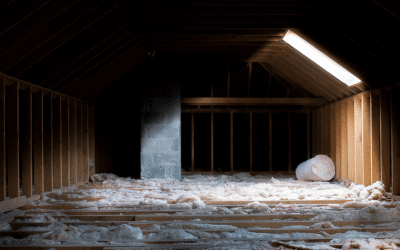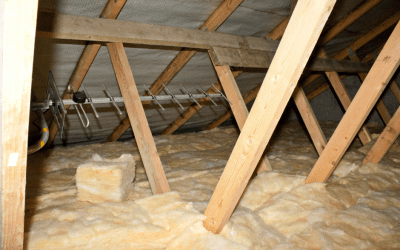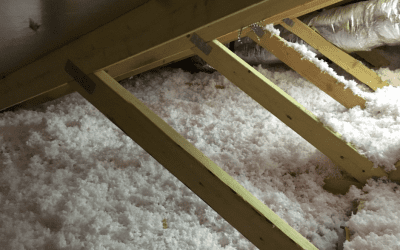Does Attic Spray Foam Insulation Increase Indoor Humidity in Golden Valley?
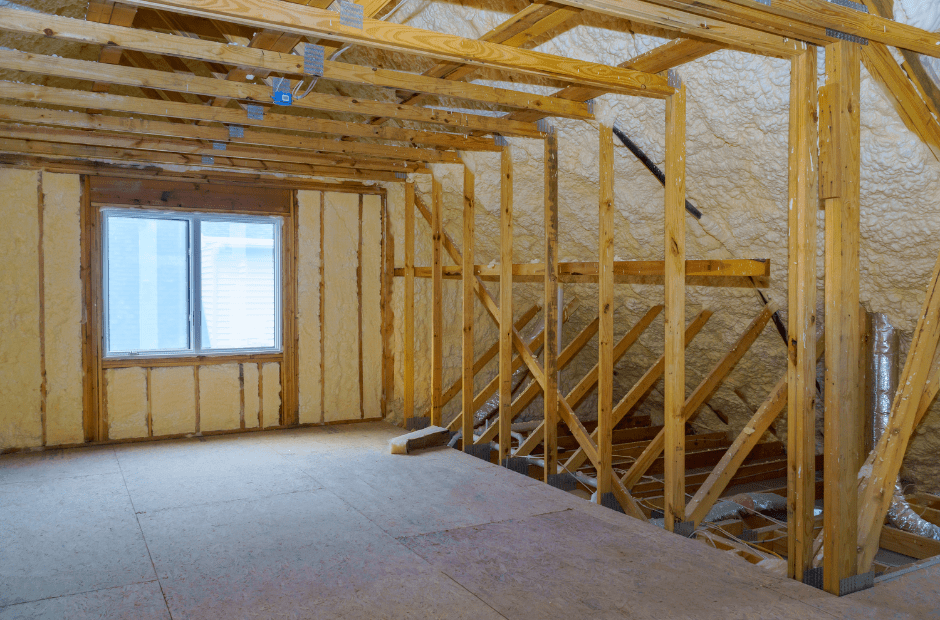
Last Updated on June 29, 2024 by Spray Foam Insulation Plus
The idea that Golden Valley spray foam insulation will increase indoor humidity is a myth. This belief stems from the fact that adding insulation to any building increases airtightness and lowers air leakage, which can lead to higher indoor humidity levels. However, in reality, spray foam has very low water-vapor transmission rates and is an excellent insulator even when installed without additional attic ventilation or ventilation above the ceiling level.
Myth: Spray Foam Insulation Increases Indoor Humidity
Spray foam insulation should not increase indoor humidity. It’s an excellent air barrier, reducing moisture infiltration and keeping your home dry. Spray foam also has a very low water-vapor transmission rate (WVTR), which means it doesn’t allow moisture to pass through it.
This is good news for our friends in the South, who experience more humid climates than people in the North. Humidity can cause discomfort and health problems such as allergies and asthma flare-ups; however, spray foam is one of the best ways to reduce indoor humidity because it prevents moisture from entering your home through gaps in walls, ceilings or floors (we’ll talk about other ways later).
Indoor Humidity is Usually a Problem Anyway
There are two common scenarios when it comes to indoor humidity. The first is that you have a problem with excess moisture in your home. This can be caused by an air conditioner or dehumidifier that’s not working properly or if you live in an area where it rains frequently and the roof isn’t properly sealed against rain water coming into the house.
The second scenario is that your home needs more moisture than the outside air around it has to offer—in which case, you’ll want a humidifier instead of a dehumidifier. Humidity levels should be somewhere between 30% and 50% for most people; below this range, our skin and mucous membranes (which make up our noses) feel dry, while above 50% leads to mold growth and other problems related to high humidity levels.
Spray Foam is an Excellent Air Barrier, Reducing Moisture Infiltration
Spray foam is an excellent air barrier, reducing moisture infiltration and increasing the energy efficiency of your home. Spray foam can be applied to any type of insulation (spray foam is a great insulator, too) but is most commonly used in attic spaces (where it increases air tightness). When you spray foam your attic, you create a vapor barrier that prevents water from getting into your walls and ceilings. This means less moisture in your house, which means fewer problems like mold growth or ice dams on your roof! Reach out to your local insulation company, Spray Foam Insulation Plus, to learn more about Golden Valley spray foam insulation.
Air Barrier and Insulation
Spray foam insulation is an air barrier and a great vapor retarder. It seals the building envelope, preventing the movement of moisture through walls, floors and ceilings. That’s why it’s a popular choice for many homes built on slab foundations and homes in flood zones where water can easily get into basements through ground-level openings like crawlspaces or under-floor drains.
In addition to being an excellent insulator (R-5 per inch), spray foam also provides excellent resistance against leaks from ductwork or plumbing pipes; this is accomplished by creating a continuous layer over all wall cavities that prevent air infiltration through small gaps between framing members such as studs and joists
Spray Foam Has a Very Low Water-Vapor Transmission Rate
Spray foam has a very low water-vapor transmission rate, which means it’s an effective barrier for moisture. Spray foam insulation is made up of tiny closed cells that are designed to hold very little water and air. This makes spray foam a great insulating material because it won’t trap heat or allow condensation to form when there’s rapid temperature change inside the walls (like during storms).
In fact, many people in Florida use spray foam insulation as part of their home’s building materials because they live in a humid climate. The state experiences high humidity year round, which can cause mold growth in your home if you don’t seal off all sources of moisture. Spray foam provides an airtight seal against leaks through cracks or holes so that you don’t have to worry about mold forming inside your walls.
How to Reduce Indoor Humidity
- Keep windows and doors closed. It may seem counterintuitive, but keeping your home sealed will actually help to lower humidity levels.
- Use a dehumidifier. As we mentioned above, if you want to avoid mold growth, it’s important to keep the humidity level as low as possible during those hot summer months—especially if you’re dealing with an old house that doesn’t have great insulation already. A dehumidifier can make all the difference in getting rid of excess moisture before it becomes an issue!
- Use a humidistat or ventilator (these are basically just fancy words for fans). This is another way to lower humidity levels inside your home without having to deal with drying out everything when you come back from vacation! These products distract from their purpose by looking like decorative pieces of art, but they actually work by circulating air through vents throughout your house; this helps circulate warm air so that it cools down faster after being heated up by electric appliances such as computers and televisions which means less energy wasted on cooling costs too!
In reality, this is more of a myth than a fact. Adding spray foam insulation will not increase the humidity in your home.
In reality, this is more of a myth than a fact. Adding Golden Valley MN spray foam insulation will not increase the humidity in your home. In fact, it’s likely that you’ll see some improvements in both comfort levels and energy efficiency once you use spray foam to insulate your attic.
First off, we’ll look at how spray foam works as an air barrier and what that means for your home. Spray foam acts as an excellent vapor retarder due to the way it’s applied: the entire surface area of what would become the finished wall or ceiling is sprayed with expanding polymer; this causes all air pockets within the material itself to seal shut when it dries out (which happens pretty quickly). This makes sure that cold air doesn’t leak into warmer spots within your house when outside temperatures drop below freezing; if it does warm up enough during winter months, then any moisture trapped inside those tiny pockets will stay there until spring arrives again!
Conclusion
We hope we’ve been able to dispel some myths about spray foam insulation and its effects on indoor humidity. Spray foam is an excellent insulator, but it doesn’t increase the humidity in your home. It also provides a barrier against moisture infiltration, which can lead to mold growth and other problems. If you have questions about how this type of insulation works or need help deciding whether it’s right for your home, reach out to us at 612-730-9417. We would be happy to help! We can help with Golden Valley Spray Foam Insulation in your home. Contact Spray Foam Insulation Plus today to learn more about Golden Valley Spray Foam Insulation.
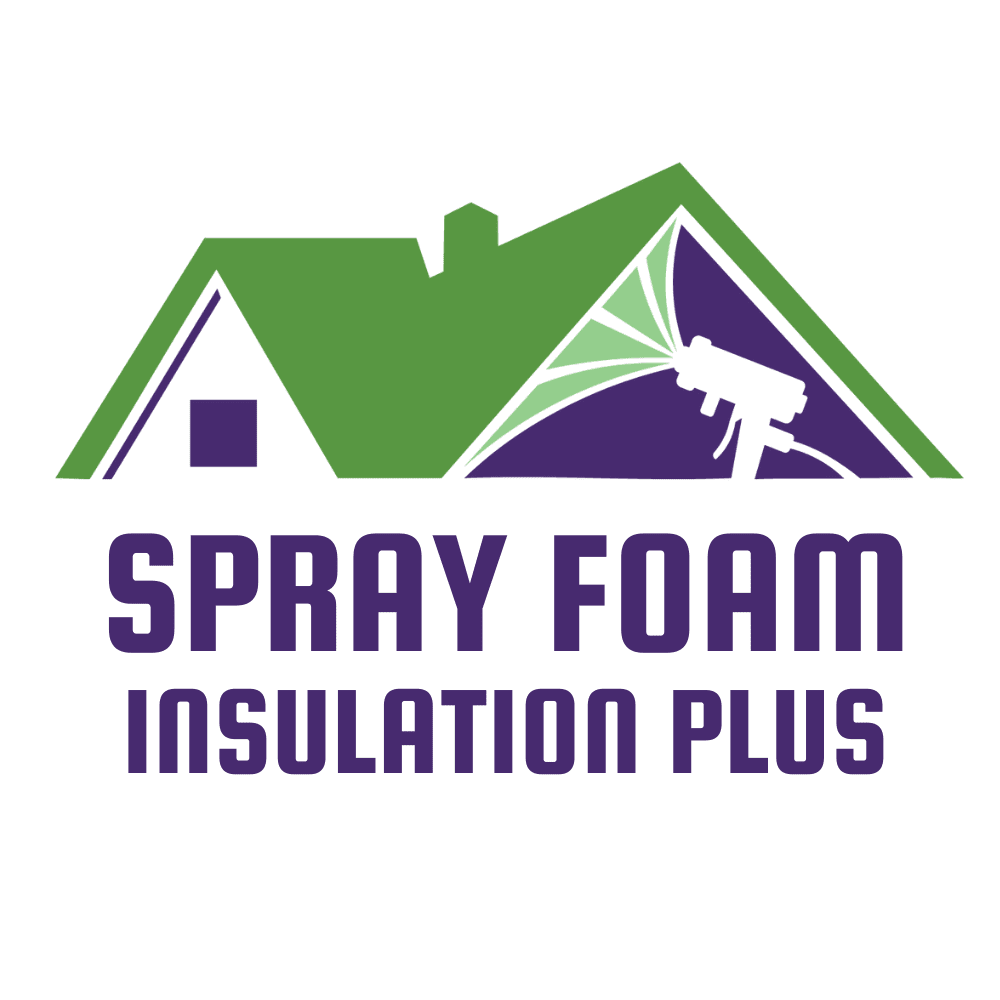
Tags
Preferred Contractors of:

